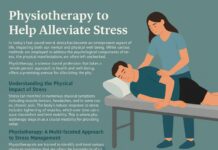Going to rehab is a huge step. It means someone has finally said, “I can’t do this on my own.” That’s not giving up—it’s being brave. But here’s the thing most people don’t talk about: rehab doesn’t magically fix everything. It’s not the end of the story. It’s the start.
Real recovery takes time. And what happens after leaving rehab is just as important—maybe even more important—than those first few weeks inside.
The Truth About What Rehab Really Does
Rehab helps create space to breathe again. It removes distractions, cuts off the chaos, and gives people a chance to focus only on healing. That’s powerful. During this time, there’s structure, support, and people who understand what addiction feels like.
But it’s still a controlled environment. Once that structure is gone, things can feel overwhelming. That’s why the next steps after rehab matter so much. They keep everything from falling apart again.
Anyone can slip back into old habits without the right support. That doesn’t mean rehab didn’t work. It means recovery is a long game—not a one-time event.
For people looking for a place that doesn’t just stop at detox, options like Legacy Treatment Centers in California make sure support keeps going. They help people build a life they can actually stick with—one that feels better than what they had before.
Life After Rehab: The Part No One Prepares For
Leaving rehab can feel strange. There’s no longer a schedule made for the day. No more check-ins every hour. No group therapy at a set time. Suddenly, it’s up to the person to make good choices every day—and that can feel scary.
That’s why planning for “after” needs to start during rehab. The goal isn’t just to get clean. It’s to stay clean. And that takes way more than willpower.
Things like having a routine, staying connected to support systems, and building a safe, healthy environment really do help. Outpatient programs can also be a smart move—they let people return to everyday life while still offering structure and accountability. None of this guarantees success, but it all adds up to something that can last.
Why It’s Not Just About Avoiding a Relapse
People talk a lot about “not relapsing.” But recovery isn’t just about staying away from drugs or alcohol. It’s about rebuilding a life that makes someone feel proud. A life that actually feels good to wake up to.
That includes learning how to handle emotions without numbing them. Finding new ways to deal with stress. Learning how to fix broken relationships—or walk away from harmful ones. Setting goals again. Laughing without feeling guilty. Making decisions with a clear mind.
These are the things that make recovery feel worth it. And they don’t happen overnight. But they do happen—with help and time.
It’s Normal to Struggle (and Ask for Help Again)
Some people feel like they “should be fine” after rehab. But that’s not how it works. Feeling confused or anxious or even tempted doesn’t mean failure. It just means more help is needed.
There’s nothing wrong with going back to therapy or even another round of treatment. No one gets everything right the first time. What matters most is not pretending to be okay when things get hard.
What makes recovery last isn’t perfection—it’s consistency. It’s being honest, reaching out, and staying connected. The biggest mistake is trying to go through it alone.
Recovery Looks Different for Everyone
No two people take the same path after rehab. Some dive into a job they love. Others go back to school. Some focus on rebuilding family trust. Others take time to figure out who they are without drugs or alcohol.
There’s no single way to “do” recovery. What matters is finding what feels steady and real. The goal isn’t to be perfect. It’s to feel okay. To feel safe. To feel like life is actually worth showing up for.
Whether it’s yoga, music, hiking, volunteering, or journaling—whatever helps keep someone grounded is worth holding onto.
Keep Going, Even When It Feels Slow
There will be days when it feels hard. When old thoughts sneak back in. When progress feels invisible. That doesn’t mean everything’s falling apart.
Recovery is slow because it’s real. It takes time to heal a body, a brain, and a life that’s been through a lot. But every day someone chooses to stay sober, ask for help, or take care of themselves—that’s success.
Even when no one sees it.
Key Takeaways to Remember
Rehab is only the beginning. It’s the place where healing starts, but not where it ends. Real progress comes in the weeks and months after, when life gets messy and unplanned and hard—and someone chooses to keep going anyway.
Structure is still important after treatment ends. That means keeping a routine, having people to check in with, and staying away from things that make recovery harder. A strong foundation doesn’t have to look perfect, but it does have to feel safe.
Slipping up doesn’t mean it’s over. Recovery doesn’t require perfection. It requires honesty, effort, and support. There’s no shame in needing more help, even after getting clean.
Most of all, everyone’s path will look different. Recovery isn’t one-size-fits-all. The goal isn’t just to quit a substance. It’s to build a life that feels worth living—a life that feels real, peaceful, and full of second chances.








